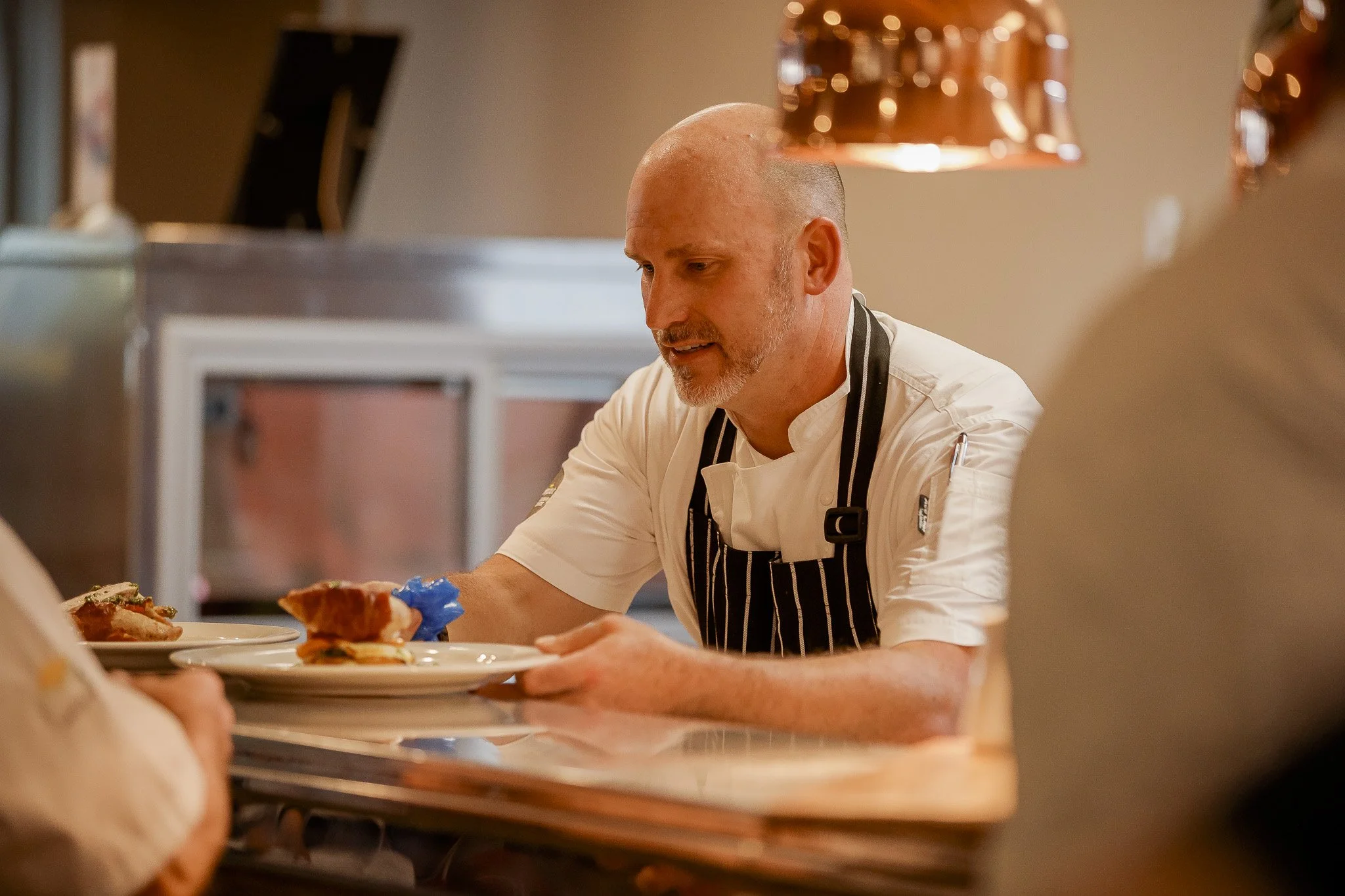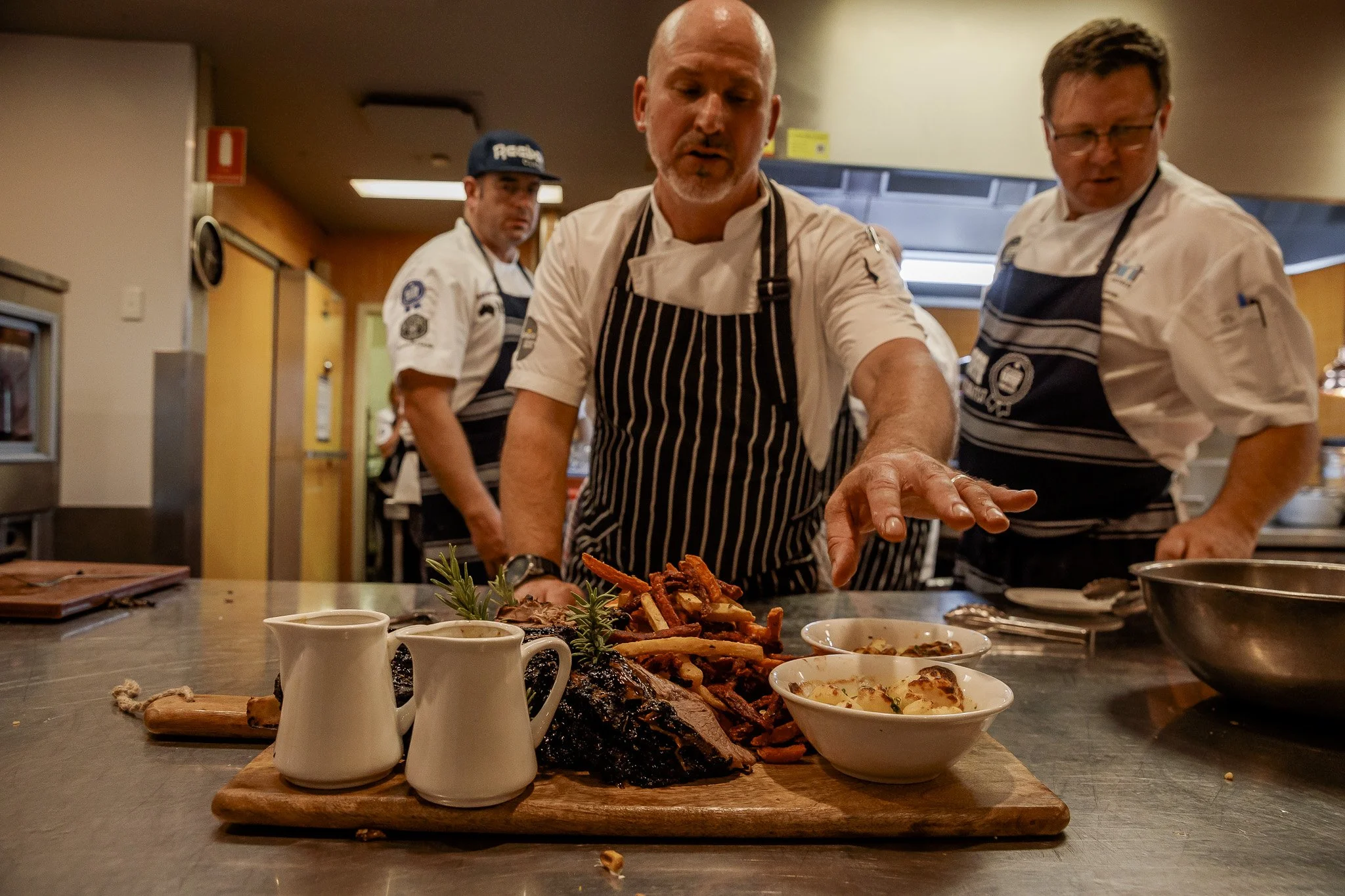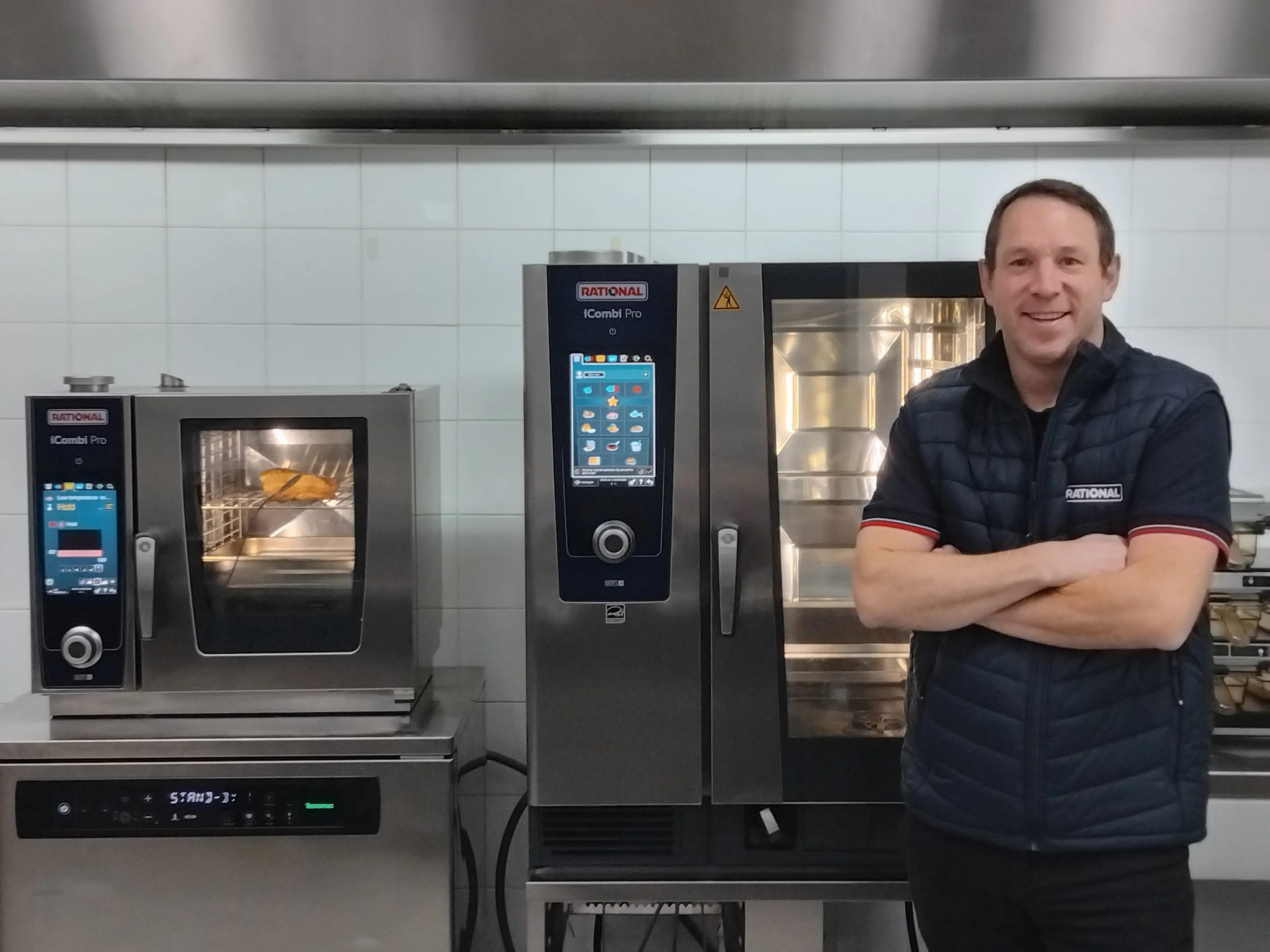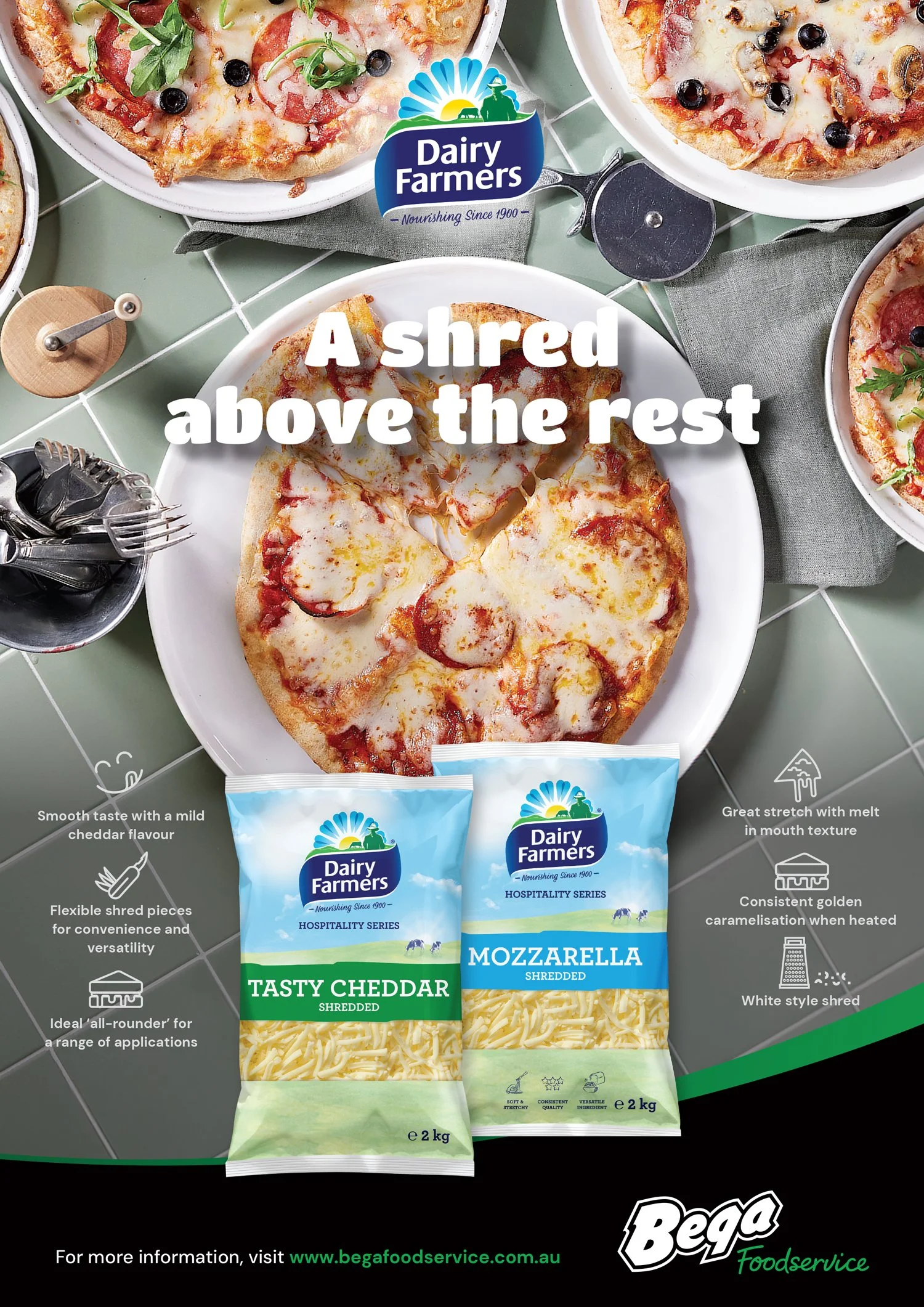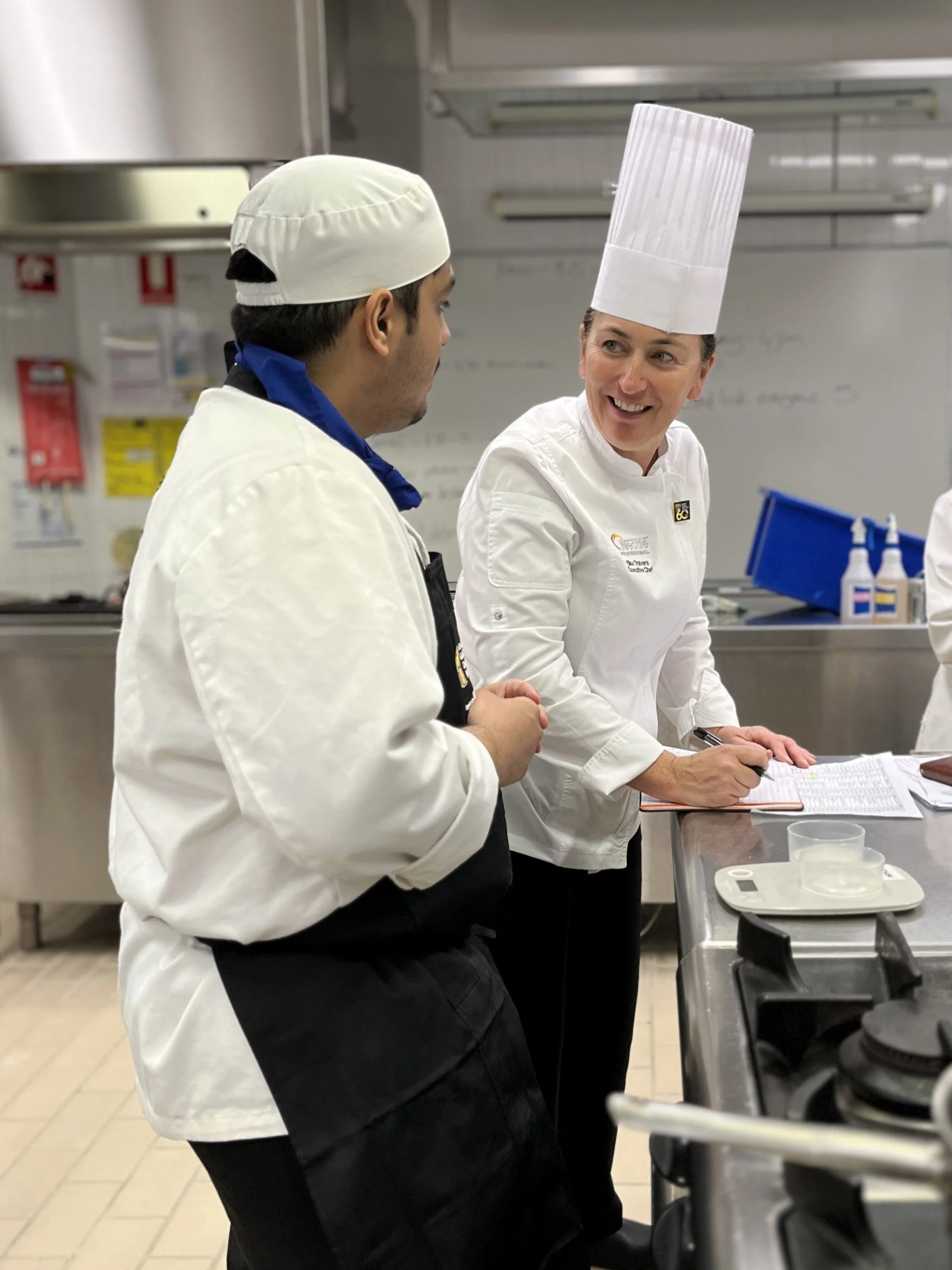The challenging role of the corporate chef
/David White, Andrew Ballard and Elke Travers are three examples of what is still a relatively rare breed in Australia – they are corporate chefs, with David working for Simplot Australia, Andrew for Rational Australia and Elke for Nestlé Professional. The role requires a diverse skillset and brings with it a distinctive set of challenges. Foodservice Rep spoke to the trio to find out more about what this specialised work entails.
From presentation to showcasing and problem solving
David White
David White trained in the UK and was working as executive chef of a five star hotel in Melbourne when he learned about an opening for a corporate chef at Simplot. “I got talking to my Simplot rep one day about product development and he told me they were looking for a corporate chef and he thought I’d be a good candidate so he encouraged me to put my hat into the ring. This was 22 years ago now - Simplot was a much smaller business back then and I was the first chef they’d put into their R&D team so I was able to cut my own path. I spent a lot of time learning what other businesses around the world were doing in this space and over time what started as just me has grown into a team of nine.”
David expanded his knowledge of product development and R&D with a food tech course early on and within three or four years was being asked to assist in sales – “it was about how to present our products effectively to customers and how to showcase particular applications of their use through to problem solving, working with customers like McDonald’s to get our products onto their menus.”
david (Centre) working with the team at simplot australia
Today David’s title is Head of Culinary Asia Pacific and he says the role is “50 per cent product development and 50 per cent customer interaction and presentation. My responsibilities have expanded across Asia in addition to Australia, hence my current title.”
“One of the most attractive things about the job is that every day is different”
Andrew Ballard has recently joined oven manufacturer Rational Australia as corporate chef after 10 years in the same role at Unilever FoodSolutions. Acknowledging it is a difficult area to get into, he believes his presentation skills were a key element in securing the role. “A lot of chefs struggle to present well and you have to be able to show how your product is going to help in the kitchen to create a great dish. You also need to be able to relate to the spectrum of customers, from those working in aged care, pubs and clubs and cafes right through to fine dining.
andrew ballard with some of the ovens in the rational product range
“A lot of chefs struggle to present well and you have to be able to show how your product is going to help in the kitchen”
“I used to work out of the Women’s Weekly stand at the Royal Easter Show running food demos with leading chefs in the industry like Peter Howard, Lyndey Milan and Geoff Jansz. There was a great lady named Mary Atkins who employed me and put me on stage. I also got to work behind the scenes on TV shows, including with George Calombaris on Ready Steady Cook, as well as cooking for food photography in cookbooks and TV ads. I think that diverse background of food styling and presenting set me up pretty well for the skills required in the role. The only skill I didn’t have was product development – creating a product from start to finish – so I’ll always be indebted to my R&D team at Unilever who taught me so much. I started there as 2IC to Mark Baylis who was corporate chef at the time, then when Mark left I stepped up into the role.”
Elke Travers has had 35 years of industry experience in all walks of hospitality, from working at McDonald’s as a teenager through to pubs, clubs, restaurants, catering and food media. “I had done so many different roles that I felt I had enough background for the job,” she says of her decision to apply for corporate chef at Nestlé Professional. “It’s a very big area of responsibility and I needed all those years of experience to draw on.
“I had educational experience in that I used to teach at Le Cordon Bleu and I also taught culinary nutrition at Australian Catholic University, and I’d worked with Curtis Stone and Donna Hay so I understood photoshoots, food styling and recipe writing. Plus I am also a pastry chef - I actually did not one but three apprenticeships! – and had my own catering business, Bite Sizes by Elke. Food is at the heart of my skillset and as I work closely with the Nestlé Professional business development team, it really helps that I’m so familiar with the various channels our products go into.”
elke travers (R) at work
Flexibility and adaptability are key
Asked what constitute the most rewarding elements of his work, David White says “I’ve often taken pleasure walking down the supermarket aisle looking at products and thinking ‘that’s one of mine’ – thousands of people eat these products and you’ve had something to do with them. It’s also very satisfying to do a good presentation to a customer and see that translate into a sale – how well we present a product can be the difference between getting a $3m contract or losing it. One of the most attractive things about the job is that every day is different – one day I might be working on developing new batter combos for our I&J fish range, the next Coles or Woolworths might be coming in for a product evaluation, the day after we might be cooking lunch for everyone in the building, then flying off to do a trade show in Japan. You really do have to be flexible and adaptable in the role because it has so much change in it, no two days are the same. We’ve recently introduced a Simplot food truck so I might be driving to Bendigo to do a cookup for a distributor!”
Having recently moved from Unilever to Rational, Andrew Ballard says he’s “still dealing with food, but in a different way: Rational is the leading global manufacturer of combi ovens, in fact we invented the combi, and we host Rational Live or Ivario Live events once a month in our showrooms. We bring potential customers in and show them how to use the equipment – we’ve created systems where the oven will virtually cook the food for you. The results are remarkable, with far less yield loss which is a big help to the bottom line. You can even connect to the oven via an app and download HACCP info, see what the last cooking temperature was and much more. It’s like AI for ovens – it’s not taking the fun out of cooking, it’s just making sure you get the perfect result time after time.”
“I love connecting with the young chefs and mentoring them, it takes me back to my apprentice days”
Andrew describes his new role as highly sales oriented: “Neil Perry has just bought two new Icombi Pro ovens from us so I’ve been out doing some training with his team at Margaret. I was also recently at some defence sites. Training can take six or seven weeks because these are complex pieces of technology so you really need to be trained up to get a thorough understanding of their potential.”
Elke Travers says her favourite part of the job is being involved in the longstanding Nestlé Golden Chef’s Hat competition – “I love connecting with the young chefs and mentoring them, it takes me back to my apprentice days. There’s a lot of pressure when you’re cooking live in hot kitchens and 30 years later I can look back and see that my time competing in salon culinaires gave me strength and networking opportunities and friends for life.”
She is also very keen on product development. “Working with technologists, nutritionists, marketers and our business development team, looking at products and applications in particular channels is a big part of the role. I work with key accounts to innovate the space of our products on the menu, helping chefs solve their problems through menu ideas that are costed out and can be replicated.
“There are occasional new product launches where we’re working with our distributors and key customers, presentations with the sales team and all the internal stuff that marketers may need my input on, such as photoshoots, recipe resources and so on.
“We work alongside organisations like NICI (National Indigenous Culinary Institute) and NASCA (National Aboriginal Sporting Chance Academy) so I’ll do some cookups or masterclasses with them as well.”
Being an ambassador for your brand and business
While all three clearly enjoy the challenges of their roles, all agree that such jobs are hard to come by.
David White says, “There’s not many companies of the scale that justifies having a culinary team – smaller businesses will usually outsource this work. I think all up there’s probably less than 40 or 50 of us across the country and we’re all connected on LinkedIn. It’s specialist work – culinary skills are just part of it, you also need the ability to be an ambassador for your brand and business.
“The ability to articulate clearly and think from the customer’s perspective is critical. And for a chef, working in a big corporate office can be a challenge in itself – understanding the etiquette and working alongside marketing and sales is quite a different skillset from that of the chef.
“I’m lucky in that I’ve always been given the resources I need – Simplot has been very supportive and allowed the team to grow because they can see the value it delivers for them.”
“The insights from having a chef as part of your marketing team can be extremely valuable”
Andrew Ballard says, “I’m lucky to have worked as a corporate chef for two businesses that are both leaders in their own right – Unilever is a leader in food solutions and Rational is a leader in equipment.
“We collaborate with each other, in fact one reason I’m here at Rational is because at Unilever we partnered with Rational and used their showroom kitchens around Australia to present to their big customers. Previously I was showcasing Unilever products in their ovens and now it’s the other way around.”
Elke Travers says demand for corporate chefs is on the rise: “I think it’s a real benefit for a business to have one – if you’re manufacturing food that’s going to chefs, why not get a chef’s feedback? The insights from having a chef as part of your marketing team can be extremely valuable.”
For those wanting to pursue this line of work, Elke recommends “you should really try to broaden your lens – make sure you’re not just restaurant or hotel-based but have a really broad portfolio. You need a thorough understanding of the industry and how the various different channels work – from education to airlines, they all have their own requirements.”
She adds, “I’m extremely fortunate to be in this role – the team I work with is absolutely amazing, they’re great professionals. They’ve each got their specialities and that’s been awesome – I’m always encouraged and supported and I’m very proud to be part of the team.”


